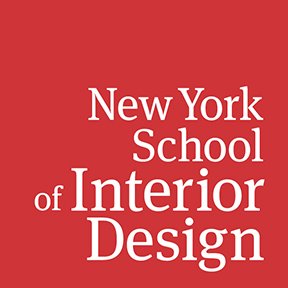Ask Yourself What the World Needs
Sara Herrera ’21 (BFA) Lays the Groundwork for a Successful Thesis Project
“Don’t stress out if you start without a clear direction. The ideas will come through the research. If you find something that matters to you, everything will just flow.”
The thesis is the culmination of a NYSID student’s education. It’s also an exercise in dizzying freedom. How does one settle on just one idea? Sara Herrera ’21 (BFA) shares insight about how to get the most out of the Thesis Preparation course.
Herrera found herself anxious and overwhelmed when she received the first email from her thesis advisor, Barbara Weinreich, also NYSID’s director of undergraduate programs. The email welcoming her to Thesis Preparation for the spring 2020 semester suggested that she come to the first class with several possible thesis ideas. Herrera didn’t know where to begin, but by the end of the semester, she knew what she wanted to do and had strategies for accomplishing her vision. We sat down with Herrera to discuss her process.
Will you tell us about your experience in Thesis Preparation?
Sure! The beginning of Thesis Prep is about narrowing down what you want to do from three or four ideas. Barbara asked me to consider what would sustain my interest for a whole year. When I realized I was most interested in getting fresh, healthy food—particularly produce—to urban, underserved communities, I began to look into how I might accomplish this through strategies like vertical gardens or rooftop greenhouses. Once we have the basic idea, we begin devising questions that will serve as a starting point for our evidence-based design research. Then, we do three case studies. Mine were Mercado Roma, in Mexico City, a fresh-air market that has an outdoor vertical farm, which taught me about circulation in a market; a restaurant in the Netherlands called The Green House with an exposed glass facade that allows customers to see into the farm where the greens are grown; and a supermarket in Belgium that gave me aesthetic direction and ideas for using natural lighting and sustainable building materials.
What’s your advice on selecting a thesis topic?
Think about what your idea or project will do to help society, or even your neighborhood. Once you can see whom your design will help, it becomes more interesting. Look at your own world closely and consider what is lacking. I live in Harlem, and walking around my community, it became clear to me that my neighbors deserve better access to fresh, healthy produce. Ask yourself what the world needs.
Do you situate your projects in real buildings?
Yes, we use the footprint of an existing building in a real location, and this is a big focus of the research towards the end of the course. You have to be able to defend why you chose the building you did, considering things like square footage, access to transportation, and foot traffic. I selected a warehouse located in Greenpoint, Brooklyn, because there are not a lot of places in that area where people can access fresh produce, and a big warehouse is basically a white canvas I can play with.
What role does your thesis advisor have in the beginning stages of your project?
Well, that depends on what you need. Barbara challenged me to think outside the box. She pushed me to consider what the community required, and to expand my vision to meet those needs. Through my research, I discovered that “healthy produce” is often pushed onto underserved communities, and then people don’t know what to do with it or how to cook it. Education and inspiration have to be part of the transformation. I started out with a simple market and vertical garden idea, and I’ve expanded it to include a space with eateries and cooking/education spaces.
How is your thesis going?
My working title is the “Urban Farming Market Hub.” It’s a market, a farm. and a learning center where the community can come to learn healthy ways of eating. I think it’s going well!
Expert Advice on Choosing a Thesis Project
“A thesis topic should pose a question and the thesis study should attempt to provide some answers. So, the “why” of a thesis topic is important: Why do you want to explore this? Whom does it help? Not every thesis topic has to address a societal problem…but it should be looking for a meaningful designed response. So whether it’s a shelter for LGBTQ+ youth or a wellness spa that explores the five senses, the thesis study should investigate how to create interior spaces for that particular topic based on evidence, case-studies, and original research.”
BARBARA WEINREICH, BFA THESIS ADVISOR
“This is your last chance to have a project without a budget or a boss. It’s also your main portfolio piece, and it has to say what your values are as a designer. The concept has to sustain your interest for a year, so choose something that sets you on fire.”
DAVID BURDETT, MFA1 THESIS INSTRUCTOR

